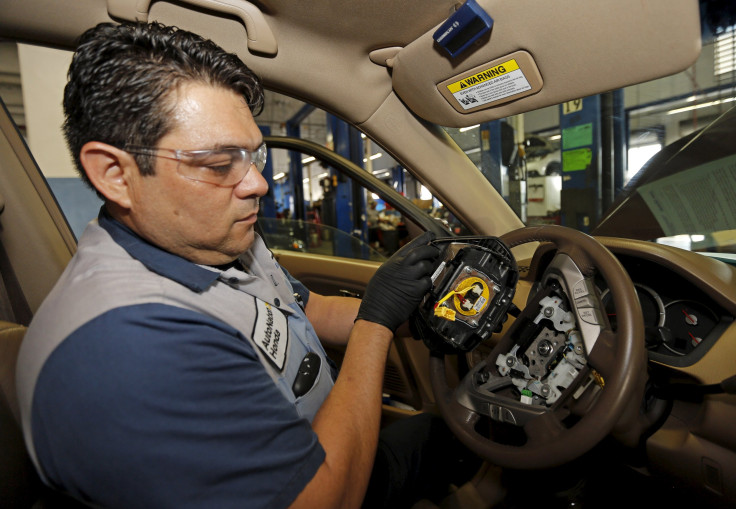Takata Recall: Mazda, Mitsubishi Add 2 Million Vehicles To Air Bag Recall

Japanese carmakers Mazda Motor Corp. and Mitsubishi Motors Corp. reportedly added more than 2 million vehicles to their ongoing worldwide recall linked to malfunctioning Takata air bags Friday.
Mazda will recall 1.89 million vehicles globally, including its Atenza or Mazda 6 sedan, which is sold in Europe, China, Australia and other Asian countries, a company spokesman told Bloomberg. The company is recalling 200,000 vehicles in Japan, including models of the Bongo van, Titan commercial truck and the Atenza produced between 2006 and 2014.
Mitsubishi will reportedly recall 152,678 vehicles in Japan and is still assessing how many of its vehicles sold in overseas markets have to be called back.
With Friday’s recall, Mazda and Mitsubishi Motors have now called back more than 5.5 million vehicles combined worldwide since Takata announced the fault in April 2013.
The latest announcements are part of the largest recall in the history of auto industry. So far, 14 companies have recalled an estimated 24 million vehicles over Takata’s air bags, which have been known to rupture with excessive force in some cases, spraying metal shrapnel into the cabin. The embattled company also admitted that it had been aware of the defect as early as 2004, but continued to sell the product and misrepresented test data.
The air bags have been linked to 11 deaths and about 100 injuries, with eight deaths in the United States. In November, Takata agreed to pay a $70 million fine for safety violations. The company could face deferred penalties of up to $130 million as part of a settlement with U.S. safety regulators.
The embattled air bag maker is currently negotiating a deal with car manufacturers to split the costs of the recall, which may reach up to $5.2 billion, Bloomberg reported citing Valient Market Research. The company’s stock has lost more than 80 percent of its value since the beginning of the scandal.
© Copyright IBTimes 2024. All rights reserved.





















